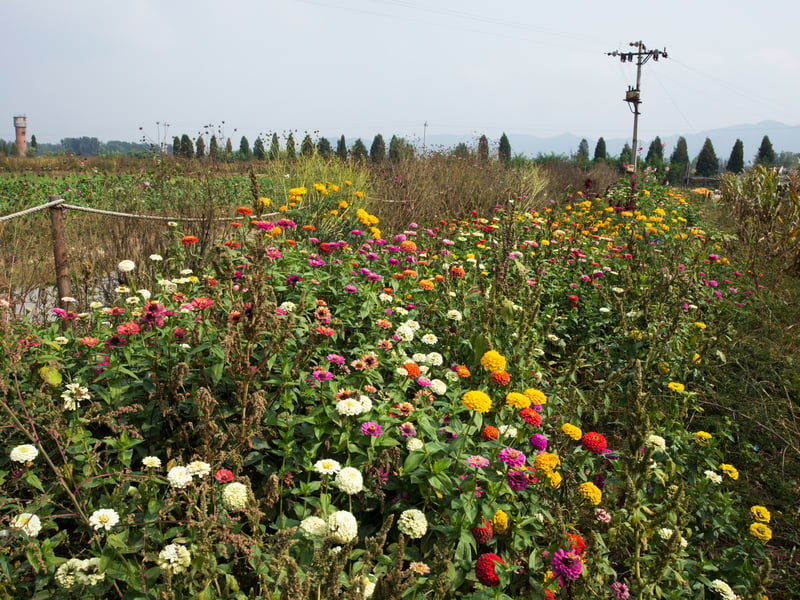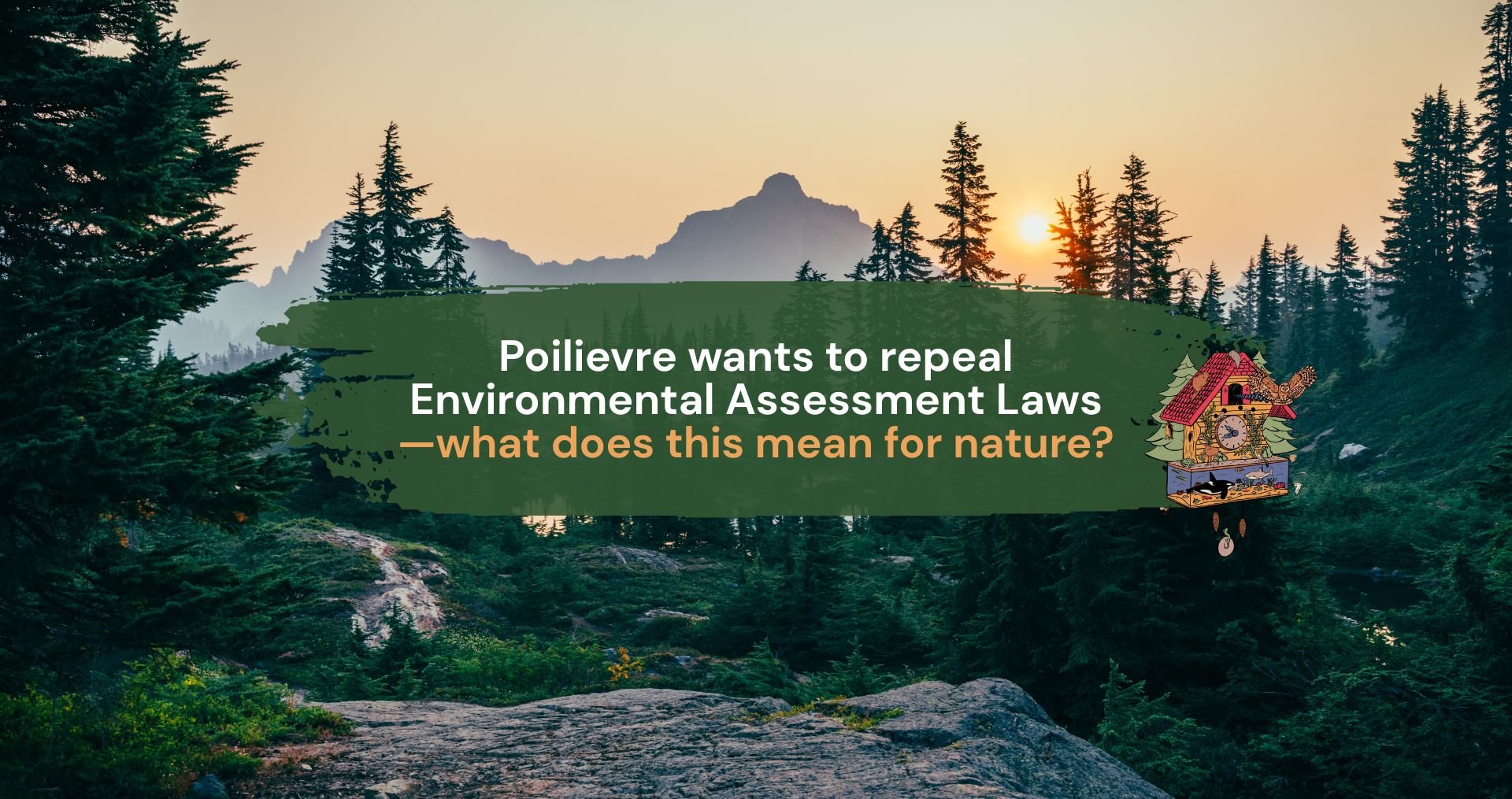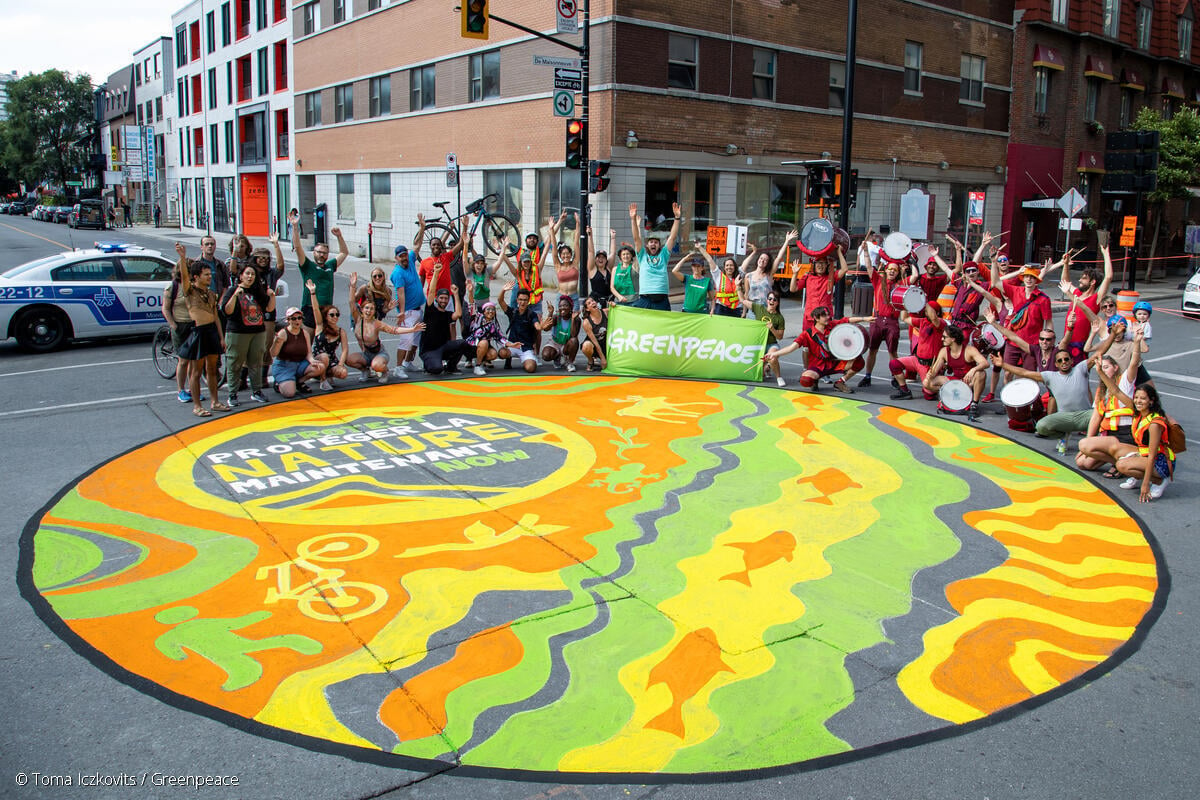(TORONTO) – In light of the recent war in Ukraine, farmers are seeing fertilizer prices skyrocket while the costs of food soar. Greenpeace Canada is drawing on new research to provide recommendations that can help break our dependence on synthetic nitrogen fertilizers and build a socially just and low emissions future for farming in its official response to the public consultation announced by Agriculture and Agri-food Canada.
Today, ten per cent of all emissions in Canada come from crop and livestock production. Of this, about one-third come from nitrous oxide (N2O), a powerful greenhouse gas over 250 times more potent than carbon dioxide (CO2) which is released from nitrogen fertilizer when applied to the soil. This makes reducing fertilizer emissions critical to mitigating the growing climate impacts of industrial agriculture.
Globally, synthetic nitrogen fertilizers are a major driver of the climate crisis, contributing 2.4% of greenhouse gas emissions. The need for large amounts of fossil fuel in their production, natural gas in particular, has led to some commentators referring to them as “fossil fertilizers”. According to new research by Greenpeace Canada, roughly 5.5 million tonnes of these fertilizers are produced here every year [1]. Industrial processes to produce them in Canada consume around 8-10% of our natural gas annually [2].
Furthermore, according to new research commissioned by Greenpeace Canada and World Animal Protection Canada (WAPC), livestock feed production emissions account for approximately 28% of all emissions from crop production in Canada [3]. This means over 8 million tonnes of CO2-equivalent are emitted from the production of livestock feed annually [4], of which approximately 85% derive from the production and application of nitrogen fertilizers [5].
This data builds on 2021 research by Greenpeace International and others showing that emissions from synthetic nitrogen fertilizer in Canada are among the highest in the world per capita. Meanwhile, according to the federal government’s own figures, emissions in agriculture continue to stubbornly rise despite progress in other sectors.
Therefore Greenpeace Canada is calling on the federal government and Minister Bibeau to set more ambitious targets to reduce emissions from nitrogen fertilizers. In addition, we recommend in our submission a cap on the production of artificial fertilizers, reductions in factory farming, discouraging the use of crops for high-emissions biofuels, more application of Indigenous knowledge throughout the food system and a huge investment in support for the many farmers pursuing organic practices that don’t rely on artificial fertilizers.
Shane Moffatt, Head of Nature and Food Campaign with Greenpeace Canada said:
“Canada’s addiction to fossil fertilizers comes with a huge climate cost. It also leaves our food supply vulnerable to disruptions from natural disasters, disease and war, as the conflict in Ukraine has again shown. While profits are soaring for the multinationals controlling fertilizer production, the costs for farmers and the public also keep rising.
The solution to these interconnected problems is to finally break our dependence on fossil fertilizers. Our recommendations today show how this can be done in a way that supports local farmers, grows healthy communities and advances reconciliation with Indigenous people.”
ENDS
Note to editors:
The full submission is available here.
The summary is available here.
[1] Methodology available on request.
[2] While the Canadian Association of Petroleum Producers (CAPP) asserts that “we utilize about 10 per cent of our extracted natural gas to create ammonia for fertilizer,” a 2009 report by Natural Resources Canada concluded in contrast that “the fertilizer industry consumes about 8 percent of the natural gas used in Canada.”
[3] Methodology available on request.
[4] Ibid.
[5] The source breakdown of livestock feed production emissions is based on our estimates of livestock feed production by geographical region and emissions factors derived by the Canadian Roundtable for Sustainable Crops in their 2017 GHG Emissions Analysis. Full methodology available on request.
For more information, please contact:
Dina Ni, Communication Officer, Greenpeace Canada,
[email protected], +1 (416) 820-2148



